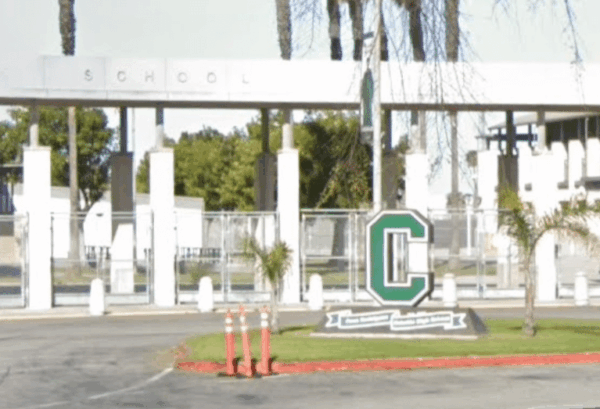
Authorities in Long Beach have arrested 34-year-old Gabriel Vigil on serious charges of sexually abusing a teenage girl, and investigators suspect there could be other victims, according to KTLA.
The case began earlier this month when a staff member at Cabrillo High School, located at 2001 Santa Fe Ave, Long Beach, CA 90810, reported that a female student had been sexually assaulted off campus by an individual connected to the school. Vigil, who worked as a substitute staff member and coach, became the focus of the investigation.
Detectives acted swiftly, gathering evidence and building their case. On Thursday morning, Vigil was taken into custody at his home near Pacific Avenue and Pacific Coast Highway. He now faces charges of statutory rape, arranging a meeting with a minor for lewd purposes, and contacting a minor to commit a felony. His bail has been set at $100,000.
Given the nature of the charges, detectives believe Vigil may have victimized others who have not yet come forward. Authorities are urging anyone with information to contact Detective Jared Asato of the child and elder abuse division at 562-570-7321.

When cases of abuse by trusted professionals come to light, families are often left grappling with questions about accountability and justice. To explore the legal options available to families of children sexually abused by a substitute teacher or coach, we spoke with Jason Amala, a California attorney who has dedicated his career to representing survivors of sexual abuse. His insights provide a clearer understanding of the legal paths that can help families find resolution and bring about meaningful change.
Editor Darla Medina: What legal avenues are available for families of children who have been abused by someone in a position of trust, like a substitute teacher?
Attorney Jason Amala: Families have both criminal and civil paths they can consider. On the criminal side, the authorities handle the investigation and prosecution, which can result in penalties for the perpetrator. On the civil side, families can file lawsuits seeking damages for the harm caused. These cases can hold not only the abuser accountable but also institutions that may have failed to protect the child.
Medina: What kind of responsibility might a school have in these situations?
Amala: Schools have an obligation to provide a safe environment for students. If a school failed to properly vet an employee, ignored warning signs, or didn’t act on reports of misconduct, they could be held liable. Each case is unique, but courts often look at whether the institution took reasonable steps to prevent the abuse.
Medina: How important is it for families to take legal action in cases like this?
Amala: Beyond seeking justice for their child, legal action can help uncover systemic issues that allowed the abuse to happen. It can also lead to changes in policies and practices, potentially preventing future incidents. Families should consider speaking with an attorney experienced in these cases to evaluate their options.
If your family has been impacted by abuse involving a trusted professional, know that you don’t have to face this alone. Understanding your legal rights is an important step toward protecting your child and holding those responsible accountable. Our team is here to provide guidance and support. Contact us today for a free, confidential consultation to discuss your options and begin the path toward justice.
 info@legalherald.com
info@legalherald.com